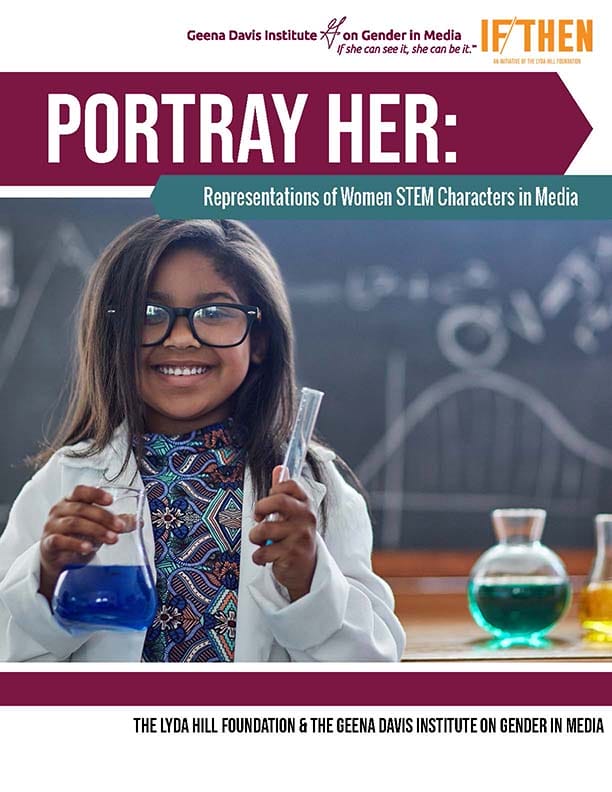
In a groundbreaking collaboration with IF/THEN, an initiative of the Lyda Hill Foundation, we embarked on a decade-long journey to understand the portrayal of STEM characters in entertainment media. This dual-method study combined an extensive content analysis with a comprehensive survey to explore how media representations influence girls’ and young women’s perceptions and participation in STEM fields.
Key Findings
Comprehensive Content Analysis: Over the span of a decade, we examined 1,007 STEM characters from top-rated television, films, and streaming platforms. This extensive analysis revealed that STEM characters are predominantly male and often portrayed in stereotypically ‘geeky’ roles, which may deter young female viewers from identifying with these characters.Survey Insights: Partnering with The GfK Group, we surveyed girls and young women from middle school to college. The findings showed a clear correlation between media consumption and interest in STEM fields. Characters like female scientists or engineers in popular media were rare but had a strong positive impact on girls considering STEM careers.Media Influence Over Time: Despite the growth in streaming content, which offers opportunities for diverse programming, there has been minimal progress in diversifying the representation of STEM professionals. This stagnation suggests a missed opportunity to influence young female viewers positively.
Recommendations
- Improve media representations of STEM characters when it comes to gender and race. This study demonstrates that media is influential in shaping attitudes toward STEM, but content producers continue to disproportionately represent STEM characters as white men, especially among leading characters. Special attention should be paid to increase the representation of women and people of color as STEM characters, and to improve the ways women STEM characters are portrayed.
- Cultivate girls’ interest in math and science from an early age through media role models, parents, educators, and mentors. Having supportive mentors, teachers, friends, and family members improves girls’ interest in and intention to pursue STEM.
- Implement early-childhood interventions to combat stereotypes about science as a pursuit for men, and cultural misperceptions that girls and women have a lower aptitude for STEM.
